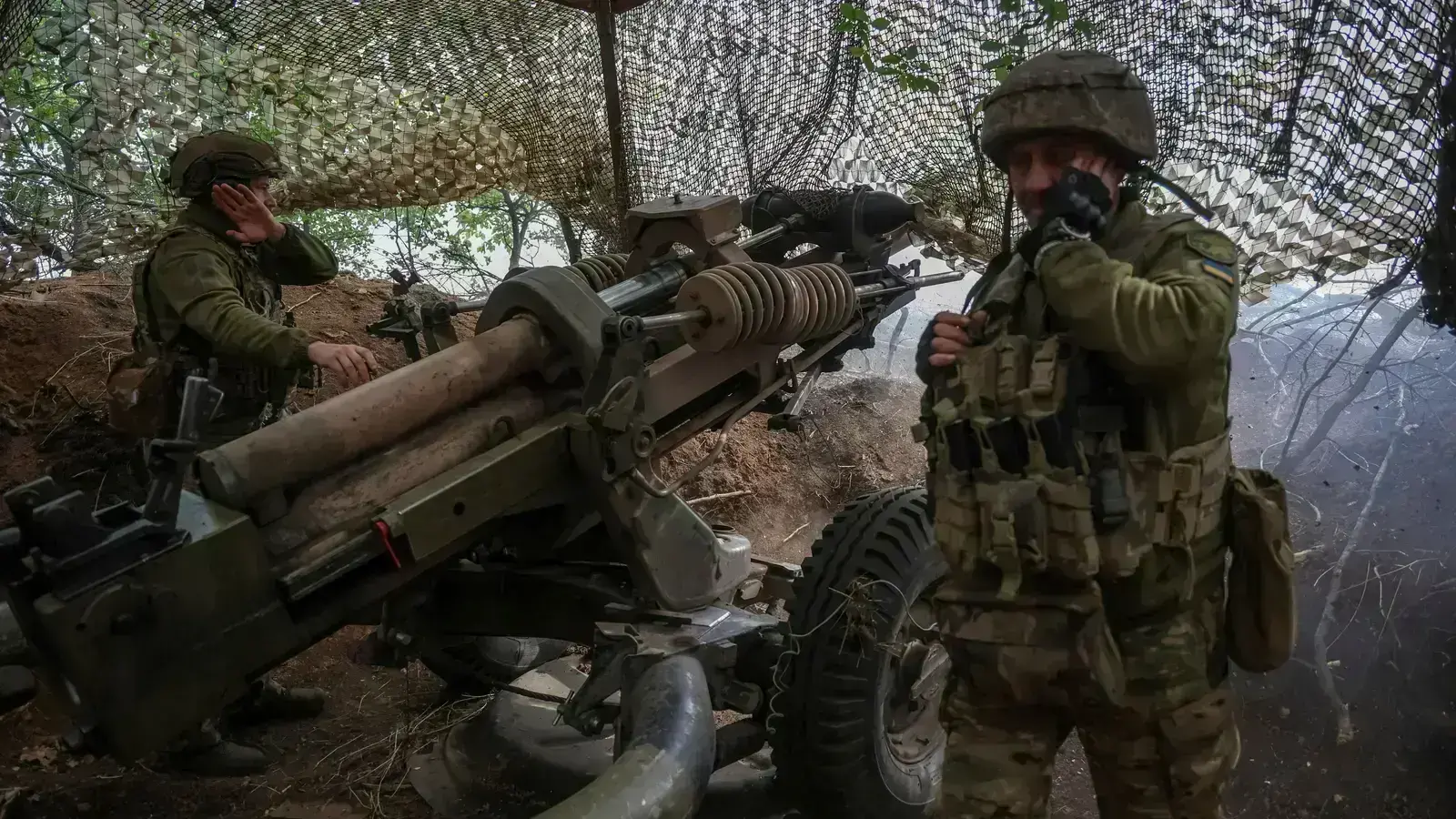Is U.S. Aid to Ukraine Too Little, Too Late?

U.S. aid is critical not just for Ukraine, but for U.S. credibility in Russia and beyond.
Originally published at U.S. News
May 2, 2024 4:07 pm (EST)

- Article
- Current political and economic issues succinctly explained.
This week, Congress sent a long-overdue foreign aid package to President Joe Biden’s desk, finally authorizing $61 billion in desperately needed military assistance for Ukraine. But before you breathe a sigh of relief for Ukrainians who have been bravely fighting Russia’s invasion for two years, consider that in the six months it took for skeptical Republicans to approve the package, Russia made half-a-year’s worth of battlefield advances. The question that nags me is whether U.S. aid was too little, too late – not just for Ukraine, but also for the United States.
That’s because the belated vote in Congress to approve the foreign assistance package was critical not only for Ukraine’s ability to defend its territory and its people but also for America’s credibility on the world stage as a reliable partner willing to support friends against unprovoked threats from adversaries and authoritarians. This aid package, however large, is not enough to ensure that message gets through; the U.S. needs to make a commitment to ongoing assistance so Kyiv can regain enough territory to force Moscow to make concessions on the battlefield or in peace talks.
More on:
While Congress was arguing, Russia was making steady advances in the last six months and has reconstituted its military strength with the help of China, Iran and North Korea. For now, U.S. military support will allow Ukraine to hold the line and quash Russian advances, but it is too late for a Ukrainian offensive or a quick or decisive Ukrainian victory.
Images of Russian advances were becoming a sign of U.S. weakness and America’s willingness to abandon its partners. U.S. failure to act would have invited further aggression – not only from Moscow, but also from Beijing. Both capitals have been closely following domestic debates in the United States.
The majority of Republicans in the House voted against the bill; many Republicans and supporters of former President Donald Trump say more weapons for Ukraine will only prolong a war that Kyiv cannot win. They argue that it is Europe’s, not the United States’ responsibility to prevent Russia’s takeover of Ukraine. What these critics fail to mention is that without those weapons, Ukraine will most certainly lose to Russia – on the battlefield or in forced negotiations.
Without a credible commitment to ongoing bipartisan support for Kyiv, Moscow wouldn’t be wrong to assume that the U.S. will abandon Ukraine sooner or later, especially if this year’s U.S. presidential election returns Trump to the White House. Regardless of the results in November, a failure by Congress to build on the latest aid package in words and deeds will undermine U.S. leadership and credibility around the world, emboldening our enemies.
Even with fresh U.S. assistance that began flowing this week, Ukraine is still likely to be outgunned this year. There is hope that increased U.S. and European ammunition production could turn the tide next year, but Russia has the advantage for now. In a best-case scenario, Ukraine can use long-range missiles – the so-called ATACMS, which were quietly delivered by Washington to Ukraine in recent weeks – to pressure Russian forces behind the frontlines, especially in Crimea, laying the groundwork for future offensive action.
More on:
U.S. military support will give Ukraine some breathing room until the end of the year, allowing its military to bolster defenses and mobilize the necessary manpower to go back on the offensive. Ukraine has some problems that foreign aid funding won’t solve: it needs more soldiers – and younger ones. The Ukrainian parliament passed a mobilization bill earlier this month to lower the conscription age to 25 and add penalties for dodging military service.
At least for now, the long-delayed passage of the U.S. foreign aid bill has signaled to our partners and adversaries around the world that Washington does not abandon its friends, even in the face of deep domestic polarization.
 Online Store
Online Store
